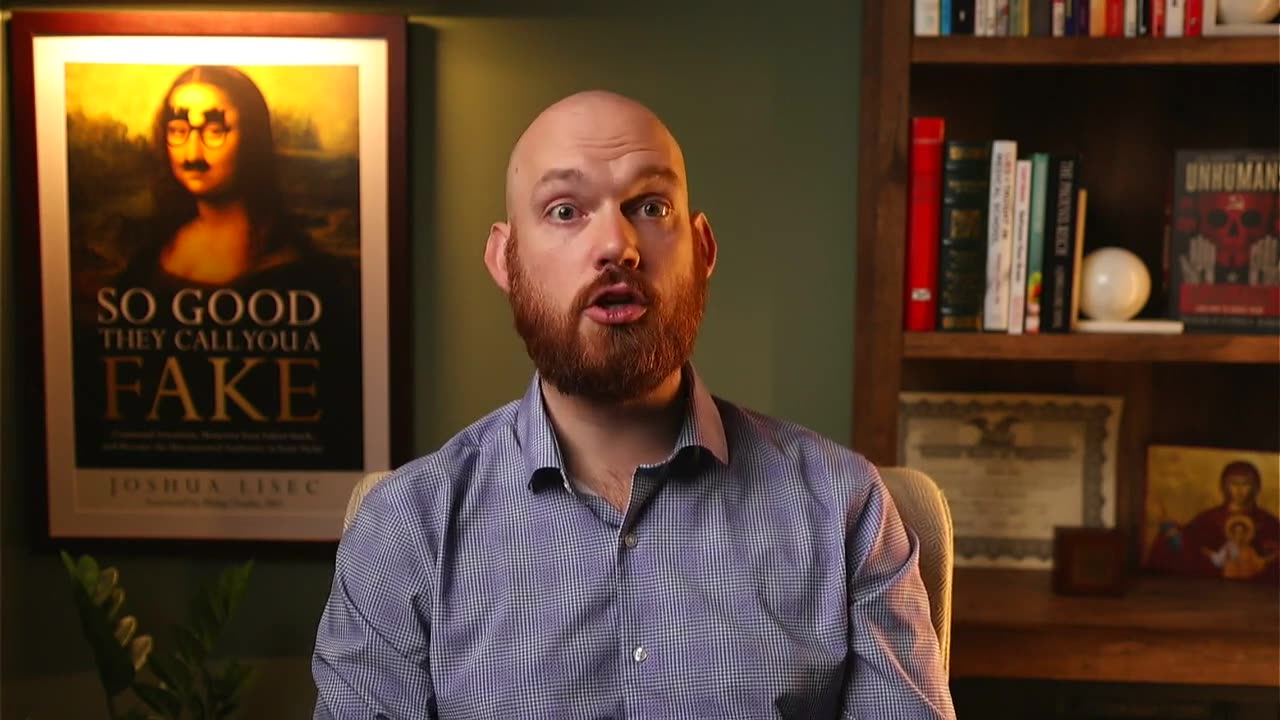Premium Only Content

How to Get People to Do What They Need to Do ft. Power VS Force — Daily Persuasion Ep. 136
Would you like to write a persuasive BOOK? One that changes minds and influencers behavior for years to come? Start with a GOLDEN book idea. Let NEW YORK TIMES bestselling author Joshua Lisec teach you: https://lisecghostwriting.com/golden
ABOUT TODAY'S EPISODE:
What if the reason people aren’t doing what you want… is because you’re trying too hard to make them? In Episode 136 of Daily Persuasion with Joshua Lisec — “How to Get People to Do What They Need to Do ft. Power VS Force” — you’ll discover the real reason why your best efforts to motivate, lead, or parent might be backfiring.
Lisec dives deep into the contrast between power and force, drawing on the profound insights from the Power VS Force book, originally popularized by Ken Wilbur (often misspelled as Wilber). If you’ve ever found yourself wondering how to persuade someone to do something without coercion, nagging, or manipulation, this Daily Persuasion episode delivers the answer — and it's a game-changer.
Too often, people confuse persuasion with pressure. But as Lisec explains, that’s exactly what the Power VS Force framework warns against. Using force — threats, bribes, shame, or guilt — might get short-term compliance. But it also breeds resentment, resistance, and rebellion. And if you're trying to motivate your child, lead a team, or make a sale, that’s the last thing you want.
Instead, Lisec encourages you to embody power — a quiet, confident energy that inspires rather than coerces. The Power VS Force book suggests that true influence comes from alignment, not aggression. That’s the foundation of real persuasion psychology.
This episode is rich with practical persuasion techniques you can use immediately — not just in sales or marketing, but in everyday life. From parenting strategies to professional leadership, Lisec offers compelling persuasion examples that showcase exactly how to get people to do what they need to do. And it’s never about manipulation — though he breaks down how many common manipulation techniques are just failed persuasion attempts dressed up in urgency.
Drawing from the Ken Wilbur book, Lisec emphasizes that people don’t like being forced — even children. He uses the example of getting a child to brush their teeth. Most parents rely on bribes (pleasure) or punishments (pain). Both are forms of manipulation techniques — they get results, but they also damage trust.
Instead, he models the persuasive techniques of pacing and leading. This is a high-level persuasion psychology tool: first, validate the person’s experience (even if it’s a child resisting toothbrushing), then offer a better way. In other words, work with their reality — not against it.
That’s power. And once you use it, you won’t go back to force.
Throughout Episode 136, Joshua Lisec illustrates how Power VS Force is more than just a theory — it’s a strategic approach to life, relationships, business, and even parenting. If you’ve read the Ken Wilbur book, you’ll appreciate how Lisec builds on its insights with tactical tools. And if you haven’t read it yet, this episode will make you want to.
Want to influence without pressure?
Motivate without manipulation? Sell without being salesy? You’ll love this episode’s persuasion techniques, examples of persuasion in advertising, and storytelling-based strategies that make persuasion stick. It’s not about tricking people. It’s about leading them.
The key takeaway: Stop trying to force people to change. Persuade them with power. Let them feel like it’s their idea, not your agenda.
If you’re a fan of ethical influence, if you’re looking for techniques of persuasion in writing, or if you’re simply trying to figure out how to persuade someone to do something in a way that feels good for both parties — Episode 136 is a must-watch.
Watch “How to Get People to Do What They Need to Do ft. Power VS Force — Daily Persuasion Ep. 136” now. Let Lisec show you the power of power — and why force has no place in the future of persuasion.
-
 9:36
9:36
Daily Persuasion with Joshua Lisec
10 days agoJohn Fetterman’s Risky Centrism, Israel v. Palestine Persuasion & Trump’s Fatherly Governance Ep 329
431 -
 2:14:31
2:14:31
Side Scrollers Podcast
7 hours agoSide Scrollers INVITE ONLY - Live From Dreamhack
140K8 -
 1:18:23
1:18:23
Simply Bitcoin
2 days ago $13.38 earnedThe Bitcoin Crucible w/ Alex Stanczyk and Lawrence Lepard
27.4K4 -
 1:25:03
1:25:03
Jeff Ahern
7 hours ago $20.11 earnedThe Saturday Show with Jeff Ahern
84.2K12 -
 1:31:56
1:31:56
Michael Franzese
22 hours agoWill NBA do anything about their Gambling Problems?
140K28 -
 57:26
57:26
X22 Report
11 hours agoMr & Mrs X - The Food Industry Is Trying To Pull A Fast One On RFK Jr (MAHA), This Will Fail - EP 14
117K74 -
 2:01:08
2:01:08
LFA TV
1 day agoTHE RUMBLE RUNDOWN LIVE @9AM EST
169K15 -
 1:28:14
1:28:14
On Call with Dr. Mary Talley Bowden
9 hours agoI came for my wife.
42.5K37 -
 1:06:36
1:06:36
Wendy Bell Radio
15 hours agoPet Talk With The Pet Doc
82.6K36 -
 30:58
30:58
SouthernbelleReacts
3 days ago $9.64 earnedWe Didn’t Expect That Ending… ‘Welcome to Derry’ S1 E1 Reaction
56K12